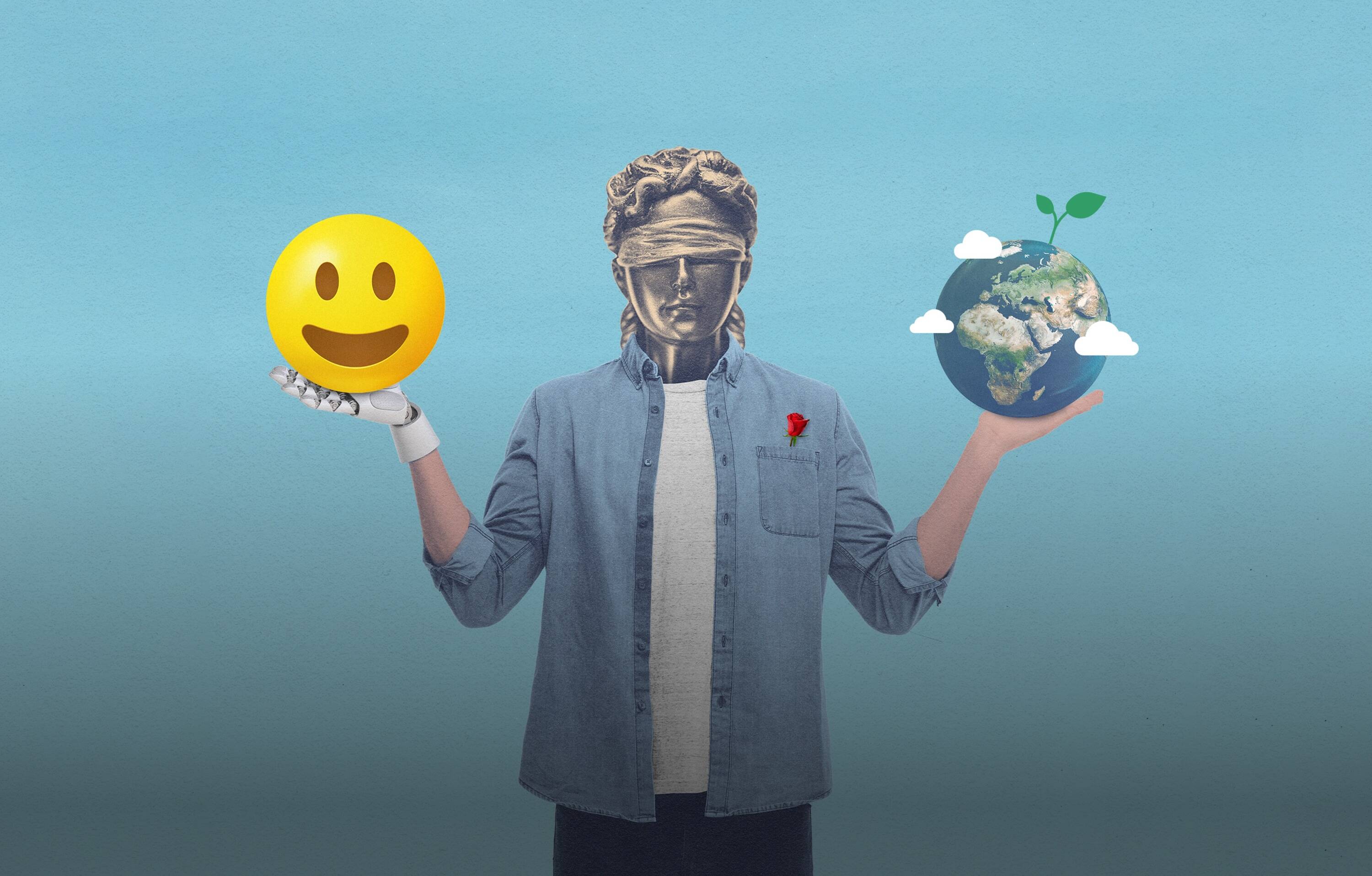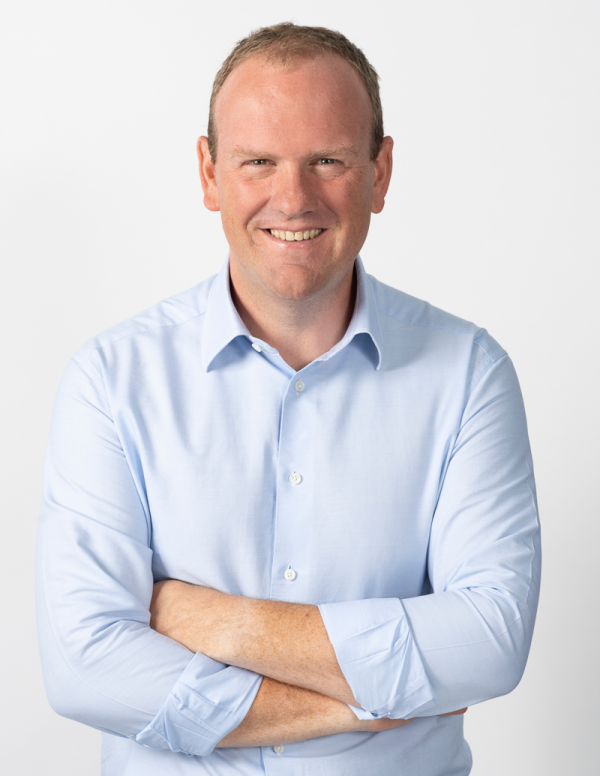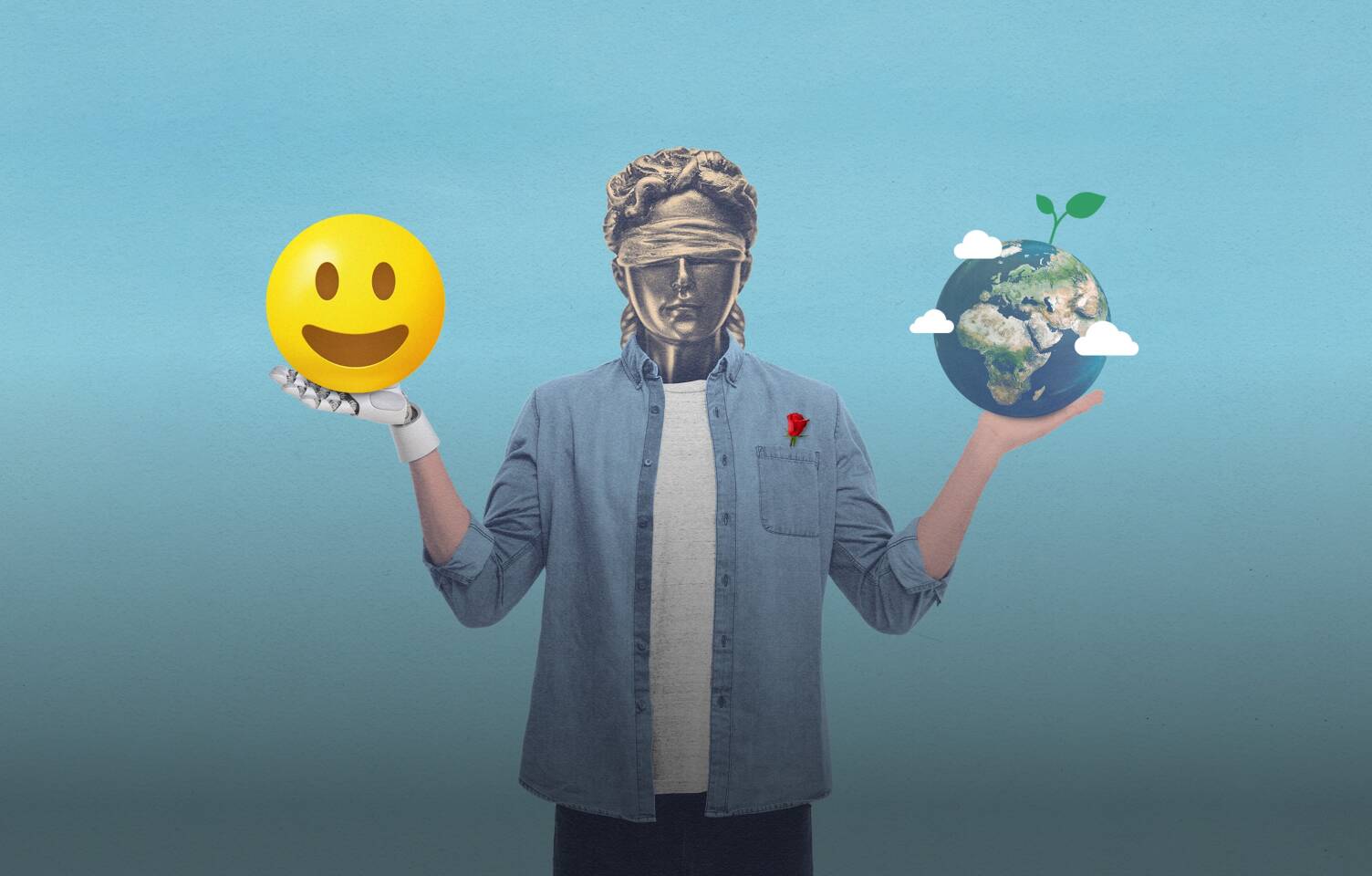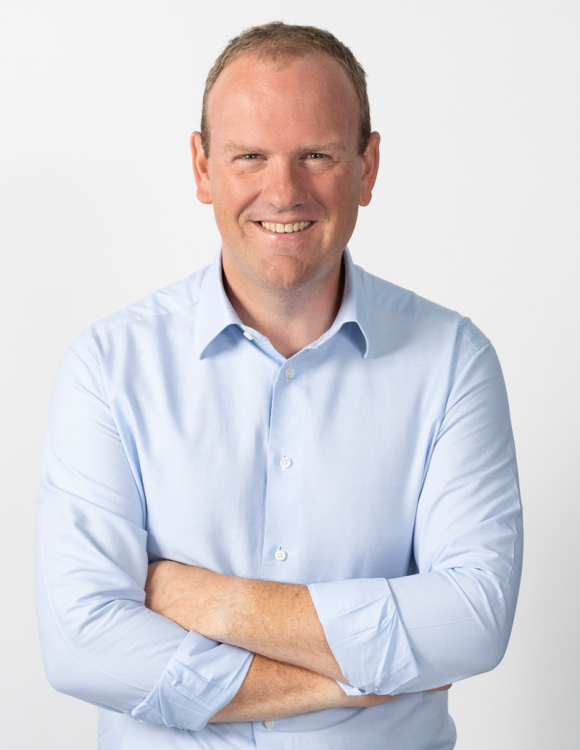

Companies can no longer neglect their role in society. Customers expect them to do business responsibly. That is what Vlerick Business School marketing professor, Steven Van Belleghem, claims. It is a challenge, but it is also a business opportunity.

In your book, The Offer You Can’t Refuse, you write that people expect companies to exercise more corporate social responsibility, now more than ever. How have customer expectations changed?

Steven Van Belleghem: “People see what’s going on in the world – climate change, anti-racism protests, the pandemic, you name it... They understand that companies could make a huge difference in that respect, even more than government. We clearly saw that speed up in 2020. People want to be part of the solution. As consumers, the first thing they expect from a company is excellent service. However, if that comes with added social value, all the better.”
“What’s important is that a company is genuine, that it doesn’t hide behind window dressing. There has to be more to it than following the letter of the law. At the same time, companies need to watch out for ‘the curse of perfectionism’. They shouldn’t be afraid of criticism. For example, Tony's Chocolonely made child-labor-free cocoa production a concrete target. Regardless, the company gets flack because it could still be doing more. As an entrepreneur, you shouldn’t let that discourage you. Look at corporate social responsibility as an evolutionary process – a process you need to make sure is transparent.”
What exactly does corporate social responsibility entail?
How does a business get that process started?
“It has to endorse its message 100% and stick to its guns. A fantastic example is Verstraete-IML, a Belgian global player in plastic packaging production. Plastic has a pretty rotten image these days. The company's major customers are all trying to cut down on their plastic consumption. That prompted Verstraete-IML to invest in developing a one hundred percent reusable, recyclable, and compostable material. Even though the company is in the eye of the storm, its project doesn’t just solve its own problem, but a global one.”
We are a long way from every company being prepared to change the world.
“True. But they don’t need to either. Start by changing your own world as a business. For example, as the owner of a paint store, you can offer to paint a charitable organization's headquarters for free. That way you’re supporting a good cause as a company, creating good press, and it’s a great team-building activity too. There's often a lot of power in that kind of initiative.”
How do you feel the pandemic has impacted business development?
“COVID-19 has raised the bar. Who would be interested in working for a company that doesn’t follow the pandemic measures now? Essentially, a company that clearly has no respect for the health of its employees... The younger the employee, the more importance they attach to an employer’s good ethos. Imagine being refused permission to work from home now, at the height of the pandemic. Doing that as a company makes a distinct impression, but that impression is unmistakably negative.”
Could an ecosystem in which companies and customers collaborate boost the sustainable entrepreneurship trend?
“Absolutely. It’s frequently a serious struggle to achieve goals on your own, even for large companies. If Delhaize commits to healthy nutrition, it can only make good on that by partnering with producers and suppliers that think along the same lines.”
“You should look at corporate social responsibility as an evolutionary process.”
"COVID-19 HAS RAISED THE BAR ON SOCIAL RESPONSIBILITY. WHO WOULD BE INTERESTED IN WORKING FOR A COMPANY THAT DOESN’T FOLLOW THE PANDEMIC MEASURES NOW?”
Marketing Professor
Steven Van Belleghem
Part-time marketing professor at Vlerick Business School and guest lecturer at London Business School. In his new book, The Offer You Can’t Refuse, he claims that customers are looking for more than just excellent service.
Steven Van Belleghem


In your book, you also talk about customers who kick a company to the curb the second their digital interface glitches. How are Belgian companies currently doing on that front?
“Belgian companies entered the pandemic at a digital disadvantage. Now, they're upping their game at lightning speed, including in the areas of e-commerce and customer service. They’re wiping out the backlog. The only real benchmark out there today is smartphone apps. They have to work perfectly because consumers are merciless. Was there a hiccup? Too bad. They’ve already clicked to Bol.com.”
The employer-employee relationship defines a company’s image. In your opinion, how important to that are telecommuting-related flexibility and the use of digital tools?
“There are a fair number of companies struggling there. Employees don’t just want a good salary and an interesting job; they also want to be able to work seamlessly and efficiently. And their work at the company contributing to a better society is a must. If the employer can sell their employees on that, it will also yield satisfied customers. And the opposite is true too. Dissatisfied employees lead to dissatisfied customers.”
Answer the competition question for the chance to win 1 of the 5 copies of ‘The offer you can’t refuse’.
Take part and win
WIN A COPY OF STEVEN VAN BELLEGHEM’S BOOK
CORPORATE SOCIAL RESPONSIBILITY
“Companies can no longer neglect
their role in society.”
Interview with Steven Van Belleghem
Joeri Moons on sustainability
“SUSTAINABILITY IS ALSO ABOUT HUMAN RIGHTS, NEW BUSINESS MODELS, AND ETHICAL ENTERPRISE”
Joeri Moons, Sustainable development leader at Decathlon België


Companies can no longer neglect their role in society. Customers expect them to do business responsibly. That is what Vlerick Business School marketing professor, Steven Van Belleghem, claims. It is a challenge, but it is also a business opportunity.
CORPORATE SOCIAL RESPONSIBILITY
“Companies can no longer neglect
their role in society.”
Interview with Steven Van Belleghem
In your book, The Offer You Can’t Refuse, you write that people expect companies to exercise more corporate social responsibility, now more than ever. How have customer expectations changed?
Steven Van Belleghem: “People see what’s going on in the world – climate change, anti-racism protests, the pandemic, you name it... They understand that companies could make a huge difference in that respect, even more than government. We clearly saw that speed up in 2020. People want to be part of the solution. As consumers, the first thing they expect from a company is excellent service. However, if that comes with added social value, all the better.”
What exactly does corporate social responsibility entail?
“What’s important is that a company is genuine, that it doesn’t hide behind window dressing. There has to be more to it than following the letter of the law. At the same time, companies need to watch out for ‘the curse of perfectionism’. They shouldn’t be afraid of criticism. For example, Tony's Chocolonely made child-labor-free cocoa production a concrete target. Regardless, the company gets flack because it could still be doing more. As an entrepreneur, you shouldn’t let that discourage you. Look at corporate social responsibility as an evolutionary process – a process you need to make sure is transparent.”
Part-time marketing professor at Vlerick Business School and guest lecturer at London Business School. In his new book, The Offer You Can’t Refuse, he claims that customers are looking for more than just excellent service.
Steven Van Belleghem

“You should look at corporate social responsibility as an evolutionary process.”
How does a business get that process started?
“It has to endorse its message 100% and stick to its guns. A fantastic example is Verstraete-IML, a Belgian global player in plastic packaging production. Plastic has a pretty rotten image these days. The company's major customers are all trying to cut down on their plastic consumption. That prompted Verstraete-IML to invest in developing a one hundred percent reusable, recyclable, and compostable material. Even though the company is in the eye of the storm, its project doesn’t just solve its own problem, but a global one.”
We are a long way from every company being prepared to change the world.
“True. But they don’t need to either. Start by changing your own world as a business. For example, as the owner of a paint store, you can offer to paint a charitable organization's headquarters for free. That way you’re supporting a good cause as a company, creating good press, and it’s a great team-building activity too. There's often a lot of power in that kind of initiative.”
How do you feel the pandemic has impacted business development?
“COVID-19 has raised the bar. Who would be interested in working for a company that doesn’t follow the pandemic measures now? Essentially, a company that clearly has no respect for the health of its employees... The younger the employee, the more importance they attach to an employer’s good ethos. Imagine being refused permission to work from home now, at the height of the pandemic. Doing that as a company makes a distinct impression, but that impression is unmistakably negative.”
Could an ecosystem in which companies and customers collaborate boost the sustainable entrepreneurship trend?
“Absolutely. It’s frequently a serious struggle to achieve goals on your own, even for large companies. If Delhaize commits to healthy nutrition, it can only make good on that by partnering with producers and suppliers that think along the same lines.”
"COVID-19 HAS RAISED THE BAR ON SOCIAL RESPONSIBILITY. WHO WOULD BE INTERESTED IN WORKING FOR A COMPANY THAT DOESN’T FOLLOW THE PANDEMIC MEASURES NOW?”
Marketing Professor
Steven Van Belleghem
In your book, you also talk about customers who kick a company to the curb the second their digital interface glitches. How are Belgian companies currently doing on that front?
“Belgian companies entered the pandemic at a digital disadvantage. Now, they're upping their game at lightning speed, including in the areas of e-commerce and customer service. They’re wiping out the backlog. The only real benchmark out there today is smartphone apps. They have to work perfectly because consumers are merciless. Was there a hiccup? Too bad. They’ve already clicked to Bol.com.”
The employer-employee relationship defines a company’s image. In your opinion, how important to that are telecommuting-related flexibility and the use of digital tools?
“There are a fair number of companies struggling there. Employees don’t just want a good salary and an interesting job; they also want to be able to work seamlessly and efficiently. And their work at the company contributing to a better society is a must. If the employer can sell their employees on that, it will also yield satisfied customers. And the opposite is true too. Dissatisfied employees lead to dissatisfied customers.”
Answer the competition question for the chance to win 1 of the 5 copies of ‘The offer you can’t refuse’.
Take part and win
WIN A COPY OF STEVEN VAN BELLEGHEM’S BOOK


Joeri Moons on sustainability
“SUSTAINABILITY IS ALSO ABOUT HUMAN RIGHTS, NEW BUSINESS MODELS, AND ETHICAL ENTERPRISE”
Joeri Moons, Sustainable development leader at Decathlon België